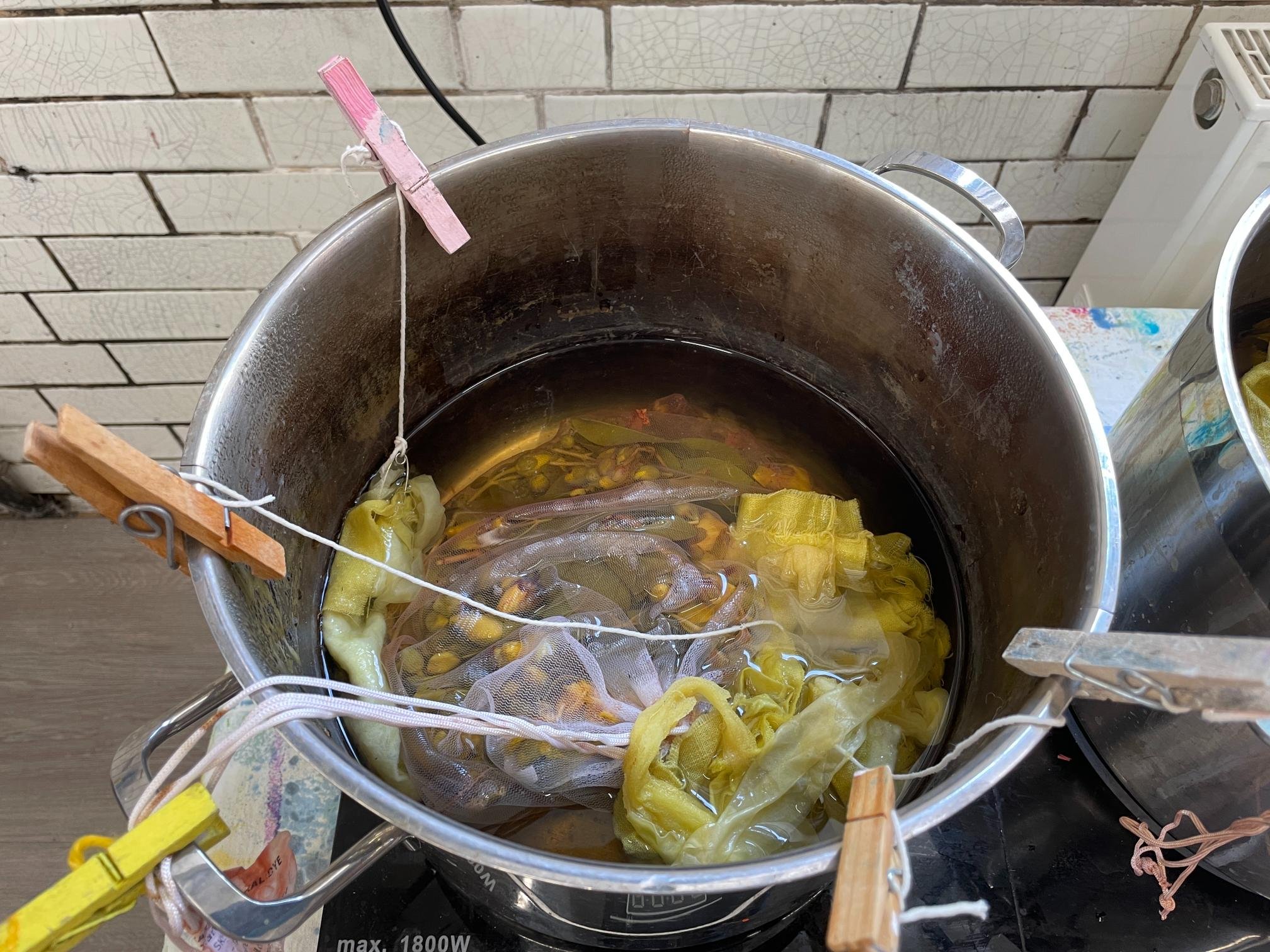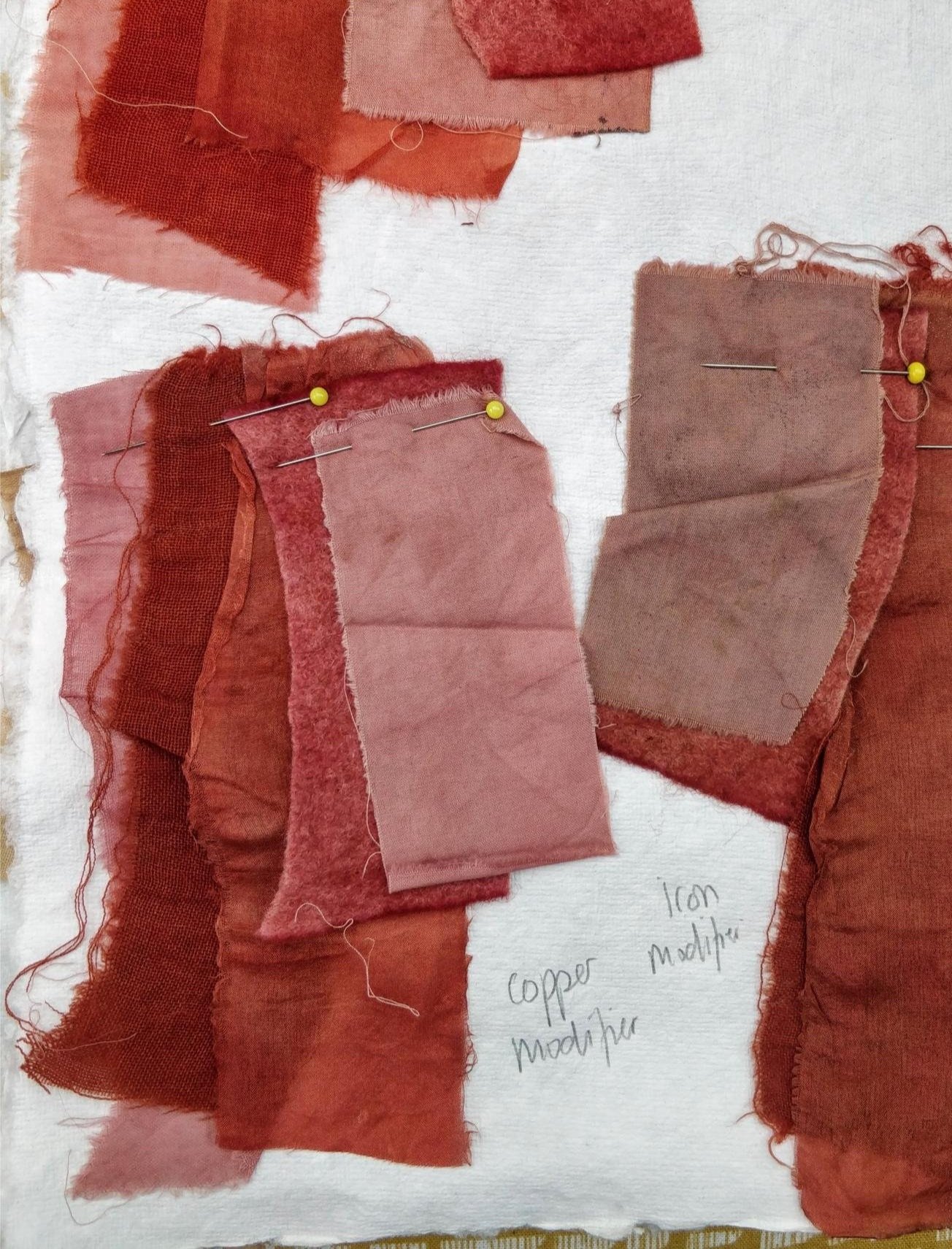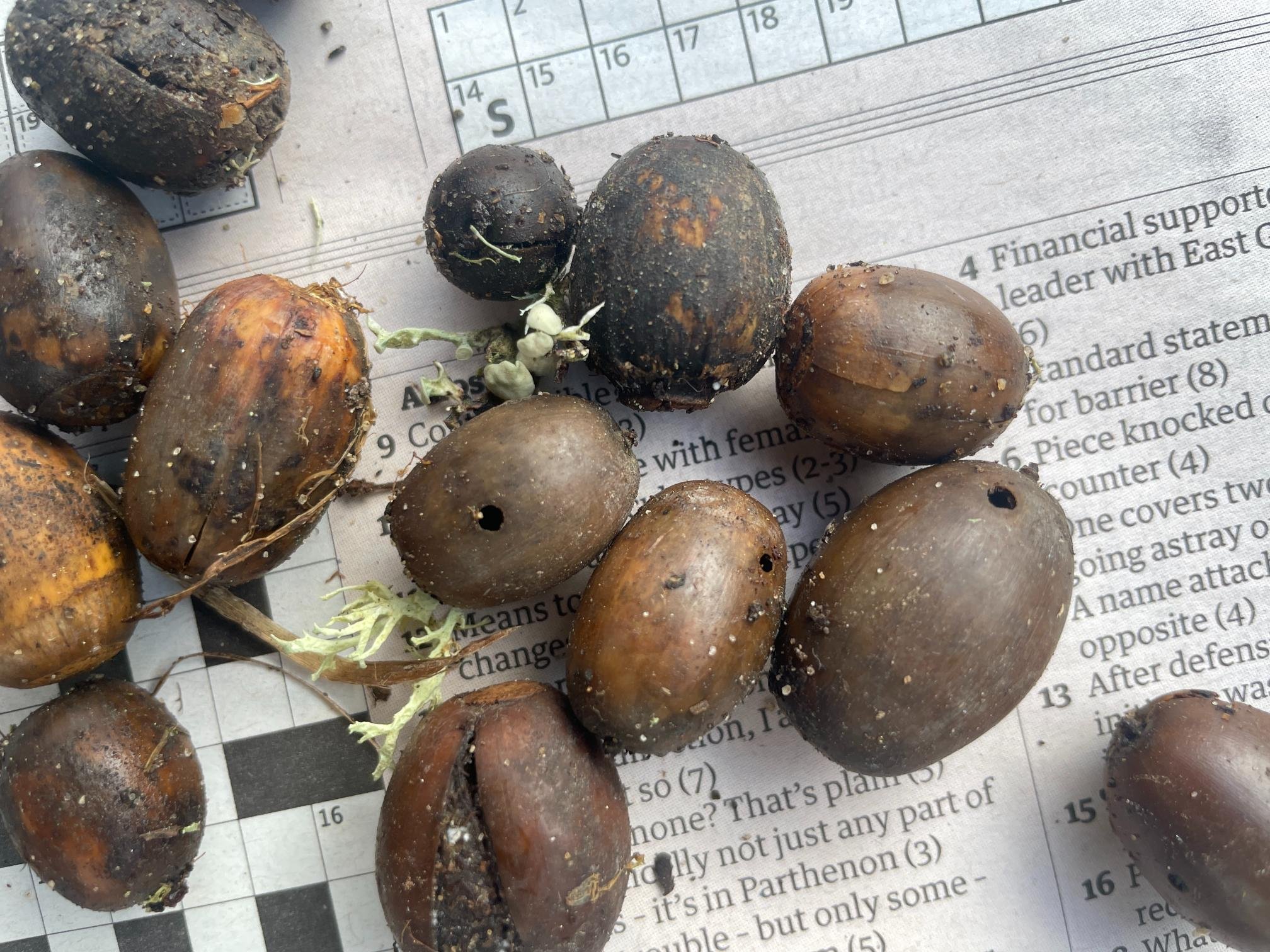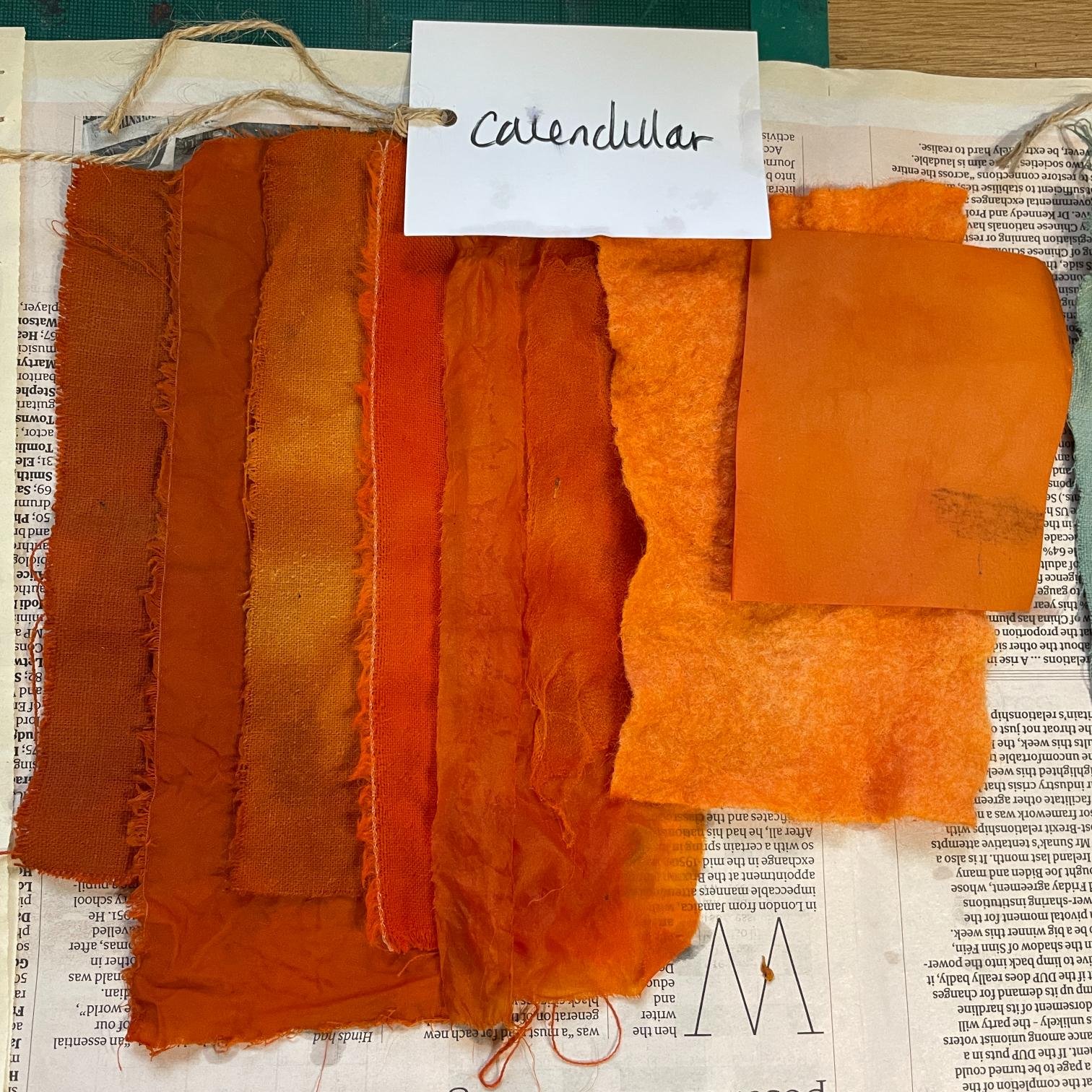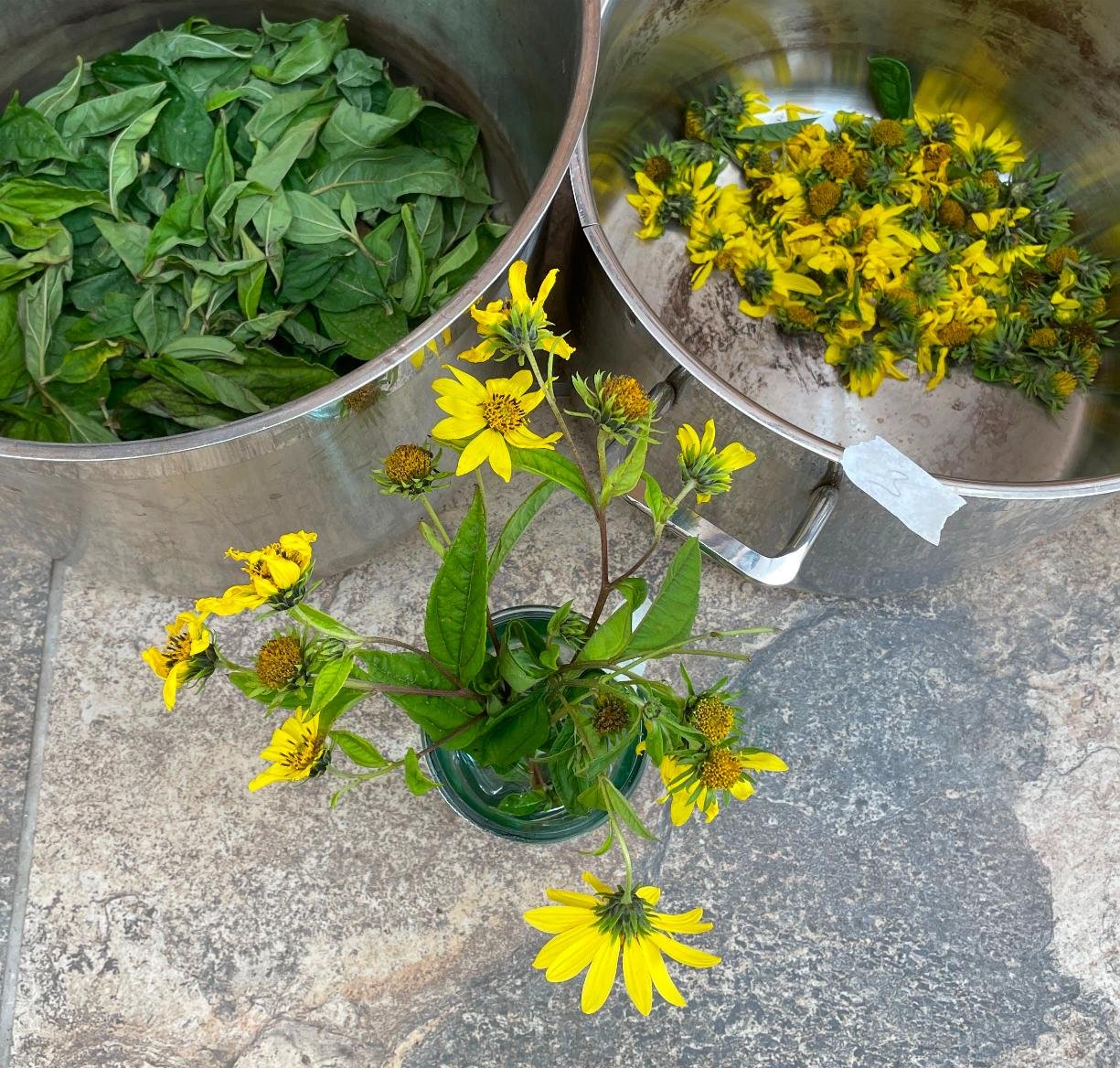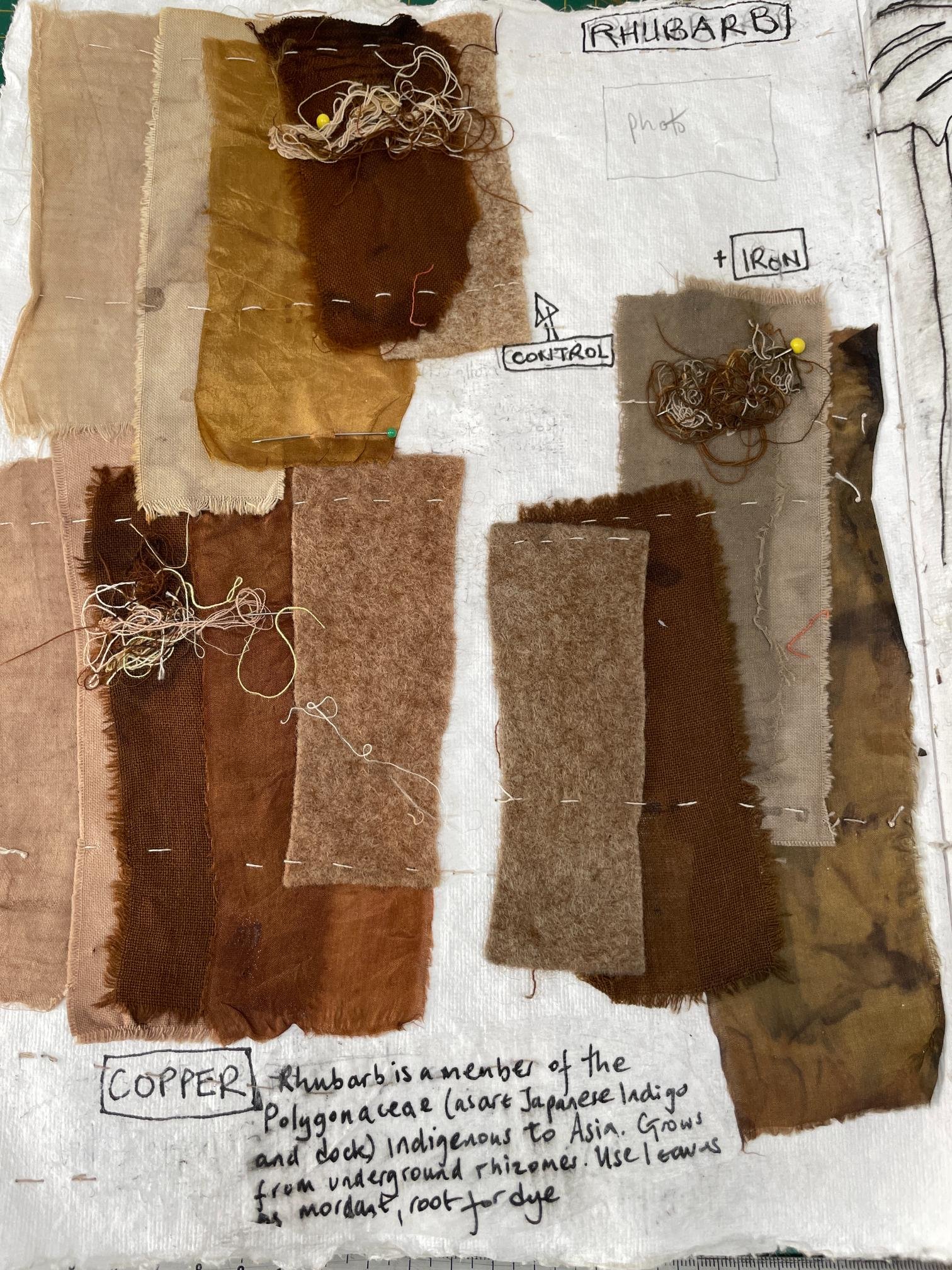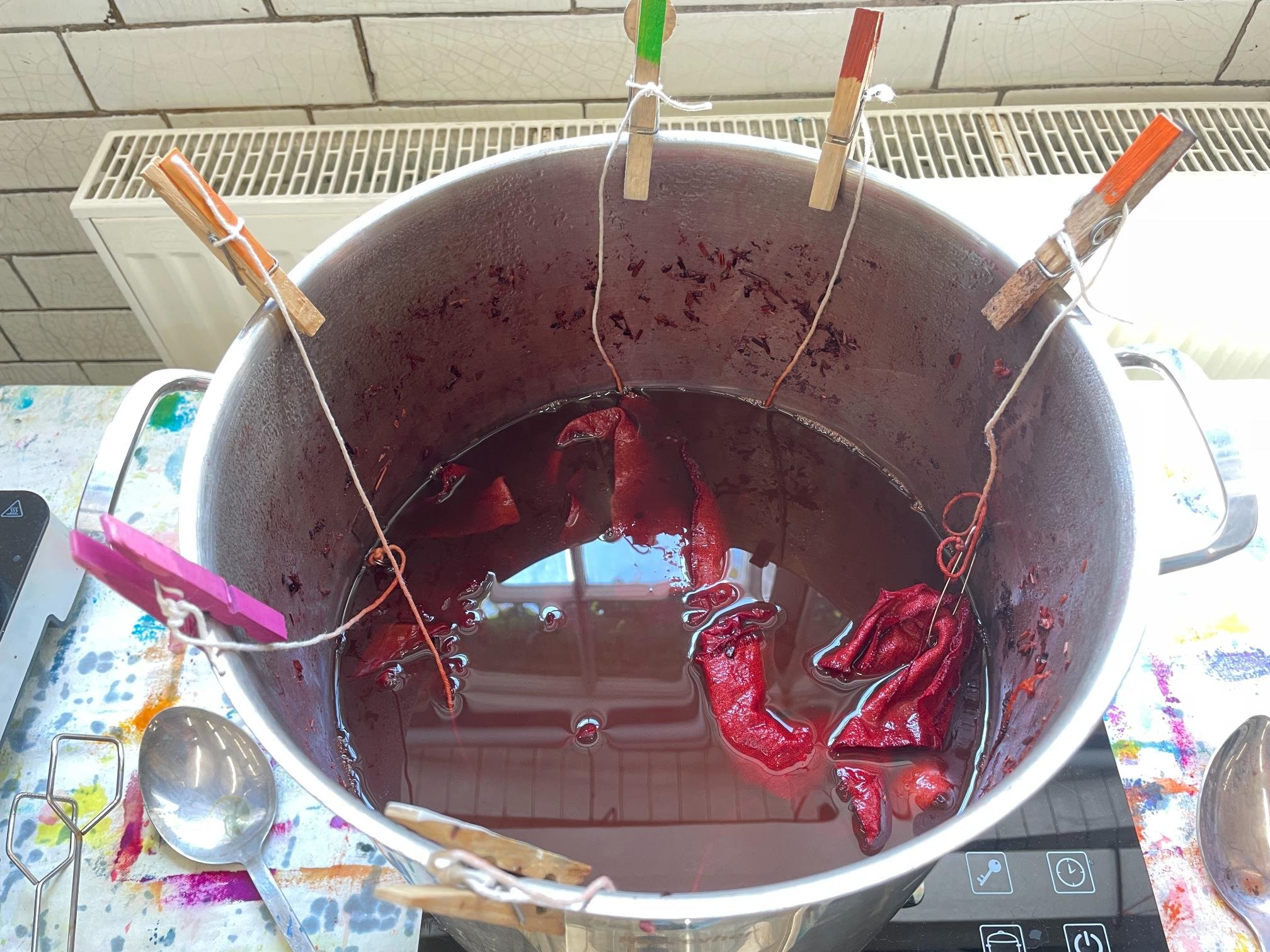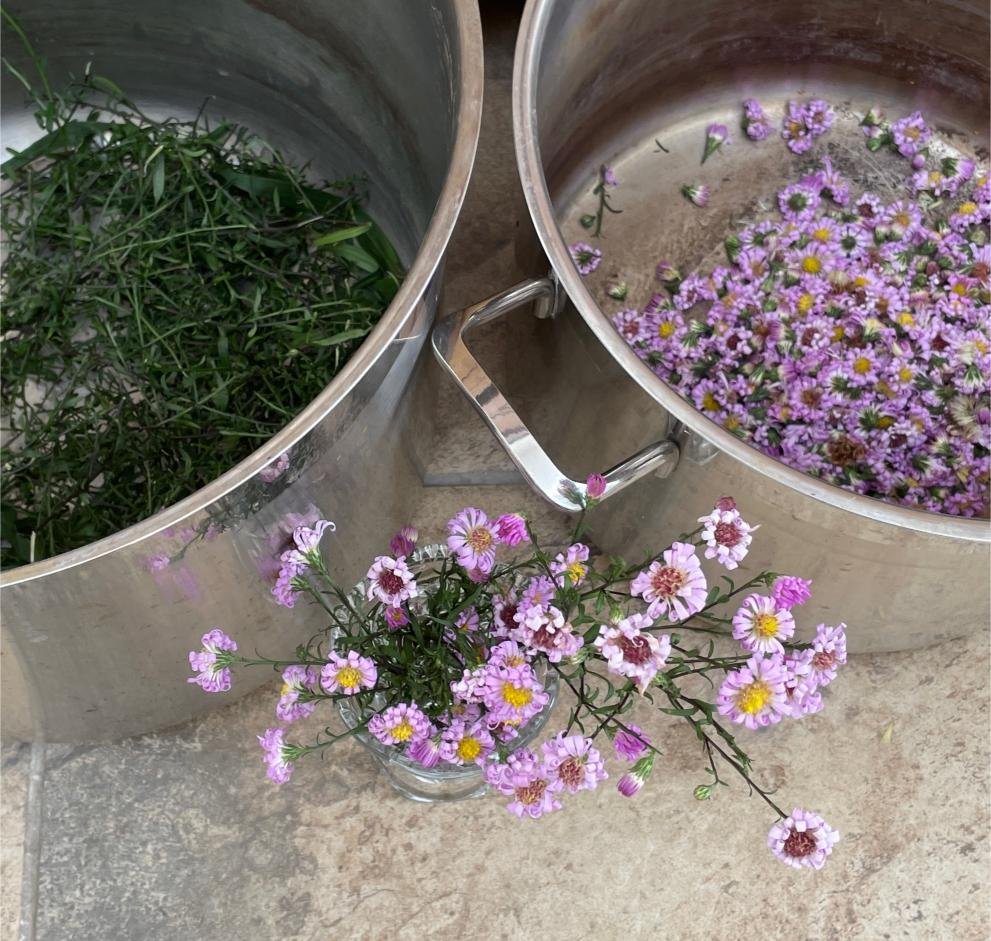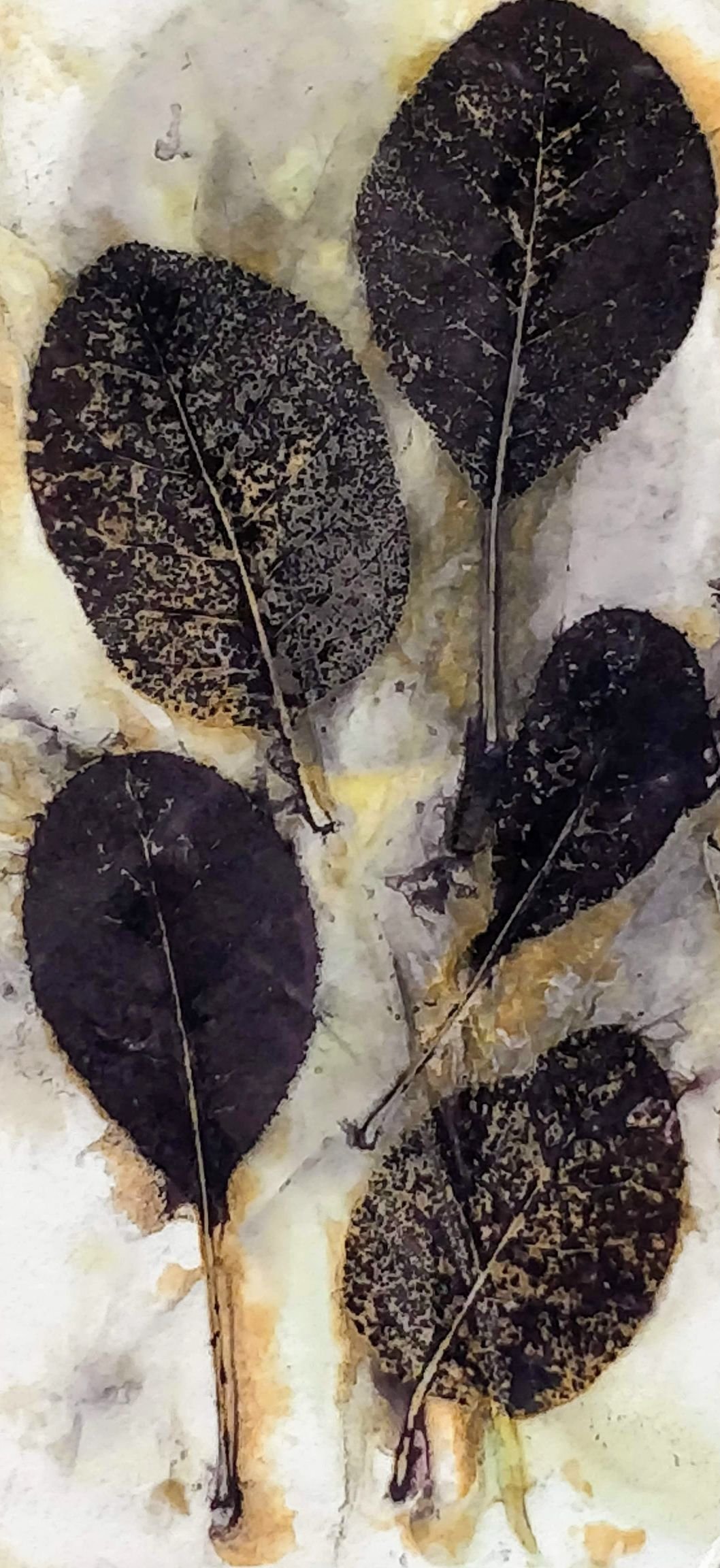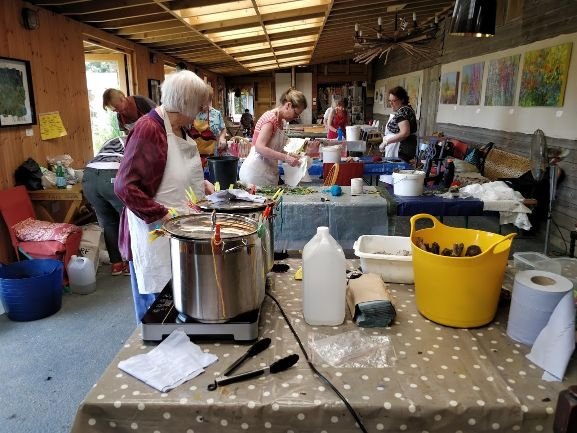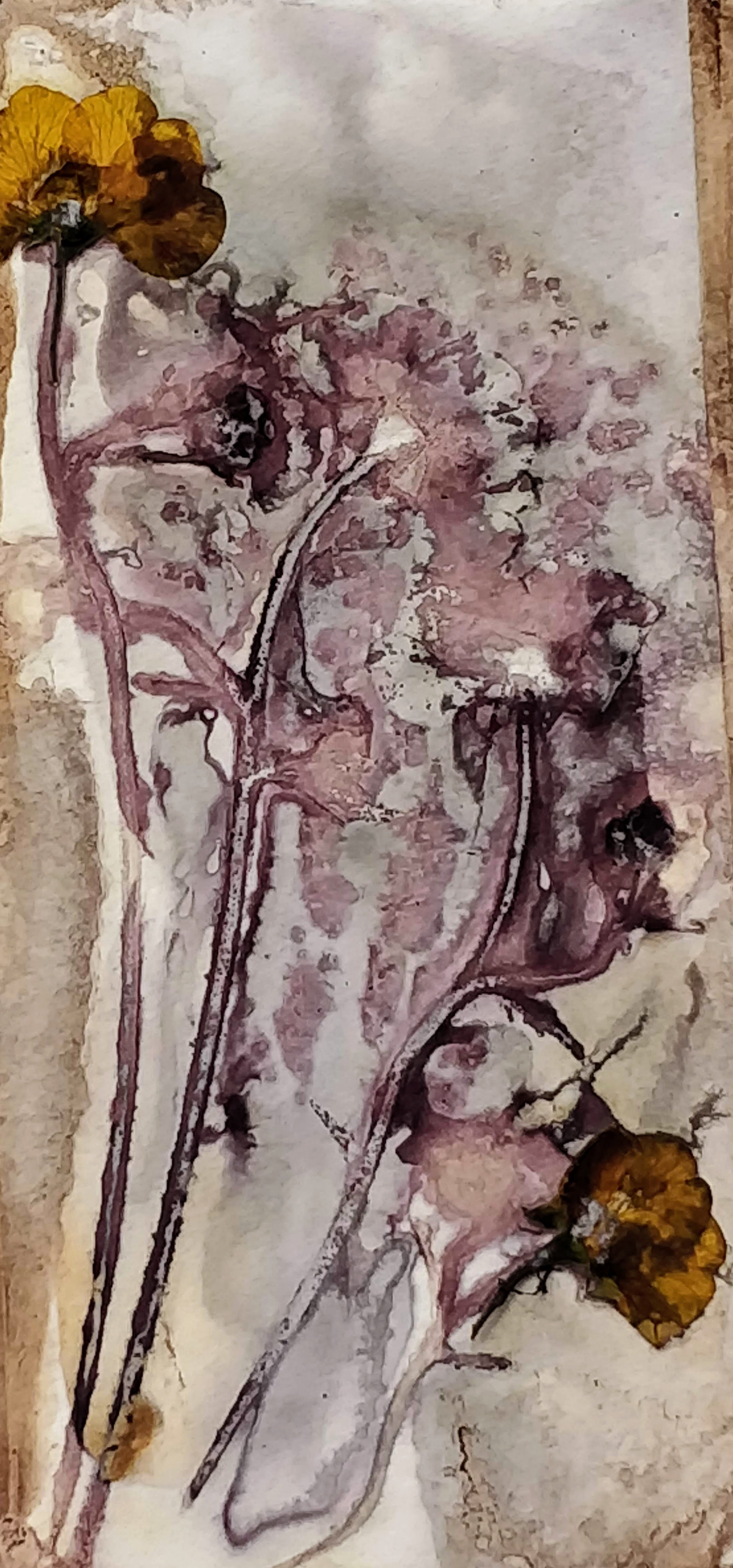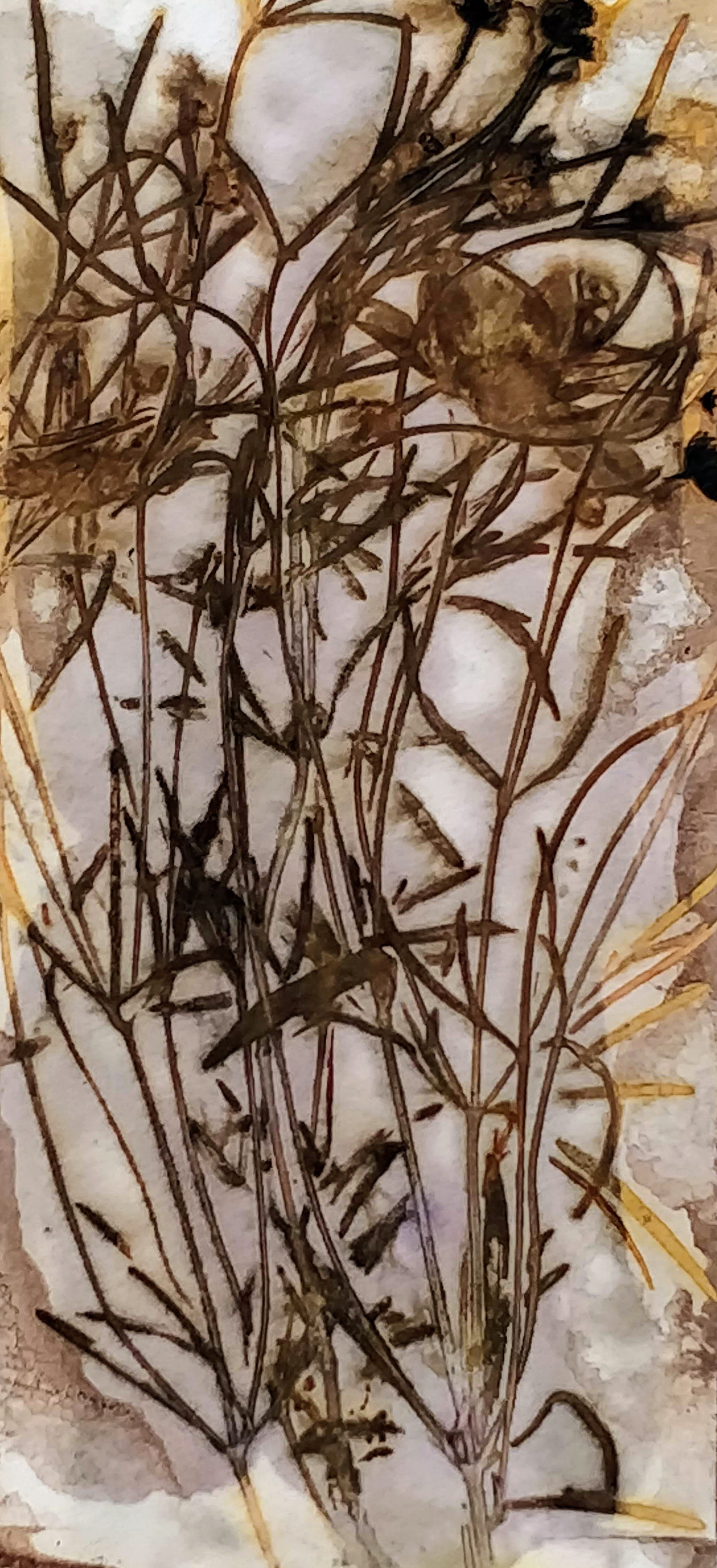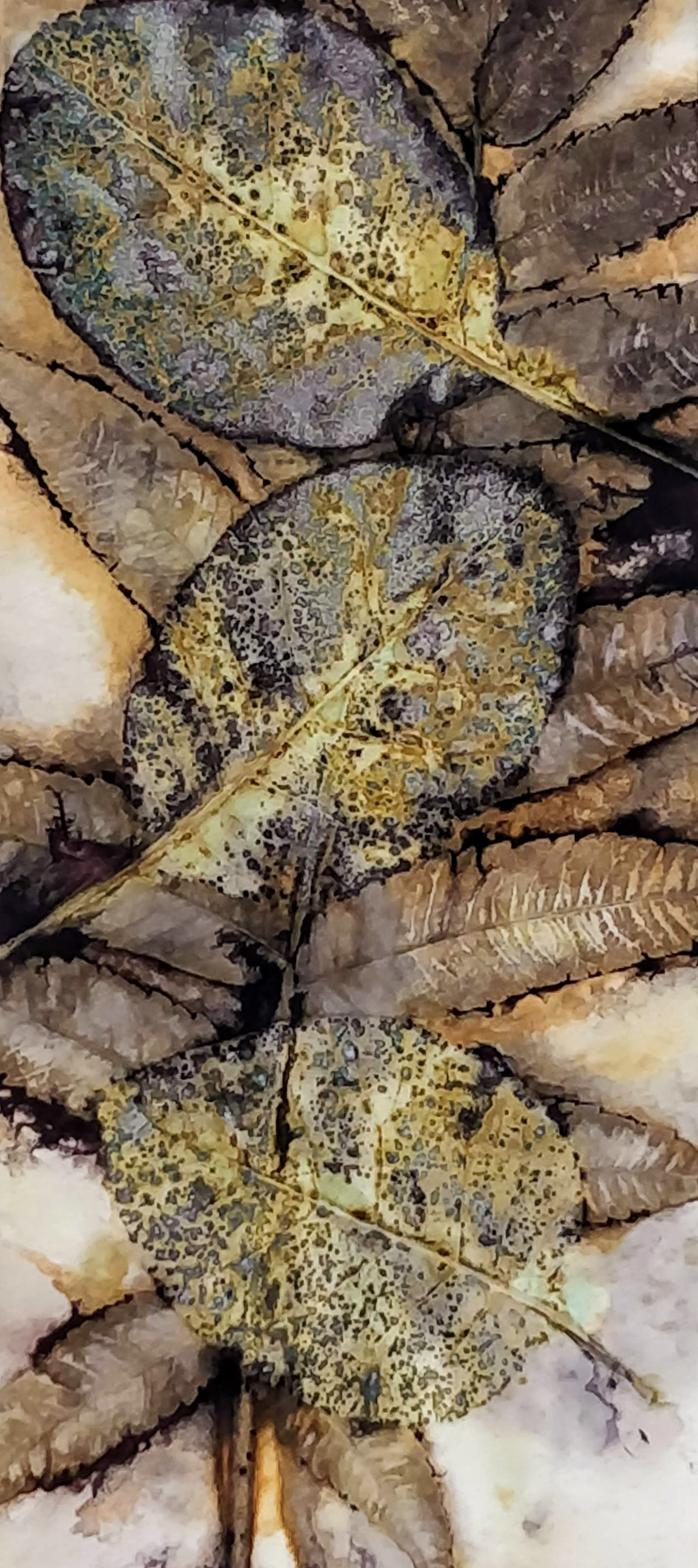Sussex Prairies Wild
16th & 17th August - 2 days
10 am – 4 pm
Cost £190 (including all materials)
Explore the breadth and variation of colour that can be achieved from dyeing with plants using traditional techniques to dye fabric and yarn samples. Whilst working in a group to create and share dye baths, you will learn how to mordant fabric so that it will catch and fix the dye to fibres and be light-fast.
By the end of the 2-day course, you will know the basic principles and practice of natural dyeing. Spaces are limited to ensure you receive plenty of space and guidance. This course is suitable for beginners and those with little experience who would like additional support and practice. All dyestuffs, fabrics and yarn for dye samples are included in the course price. You will be introduced to solar dyeing, dyeing with heat and slow dyeing practices and you’ll find how differently cotton, silk and wool take the dye. In addition, you will practice modifying initial dye samples to extend the colour range. Working in a group you will create dye baths and record your findings throughout the two-day course so that you have reference notes and know how to extend your exploration at home. In addition, I will send you comprehensive course notes after the course.
Whats included?
I will supply materials for the successful completion of this course, including plant dye reference books, paper, and pens for the documentation of samples; dye pots and other dye equipment, disposable gloves, mordants, dyestuffs and modifiers. Cotton, Silk, and wool fabric and yarn for dyeing.
Self-service coffee, tea, and biscuits are included in the fee. Lovely cakes will be available to purchase in the café, you may wish to bring a sandwich or similar for lunch on the go
What do you need to bring on the day?
Please wear clothes suitable for messy work. and bring with you an apron, a large, repurposed glass jar with a lid (to take 1pint or ½ litre volume) Your rubber gloves if you prefer to my disposable ones provided. Stapler, pencil/pen to fix and record the samples on paper. Notebook, pencil (Amanda will send you detailed presentation notes after the course). 2-3 poly bags (carrier size) or plastic sheets to wrap and transport damp samples.

